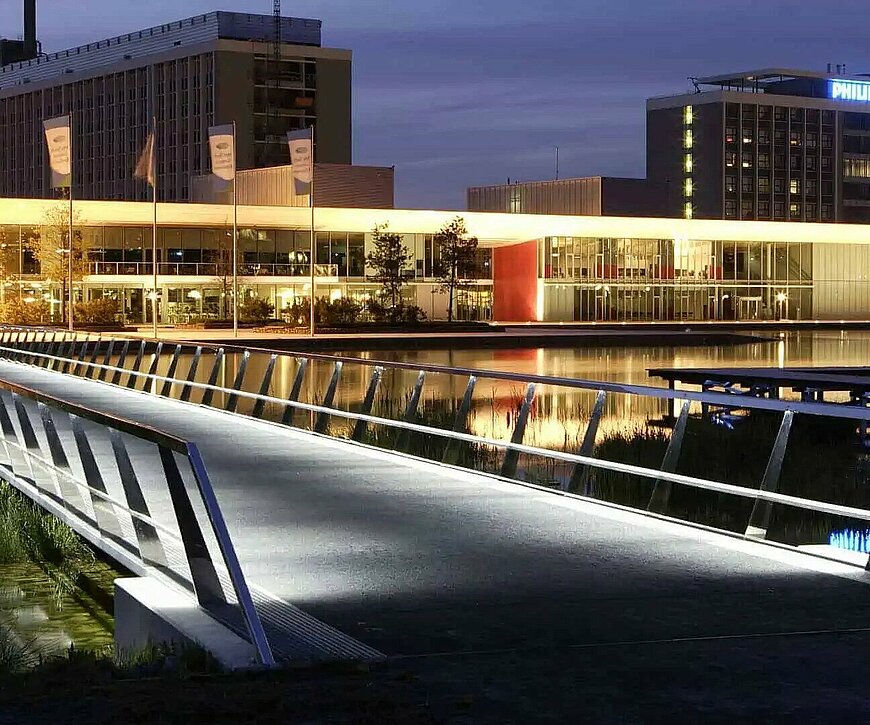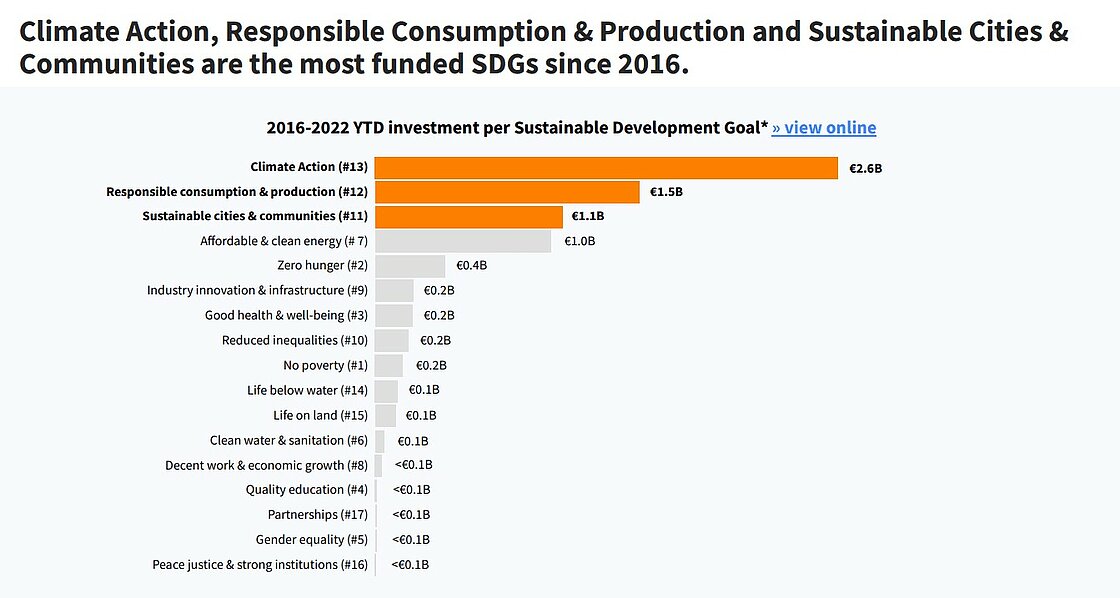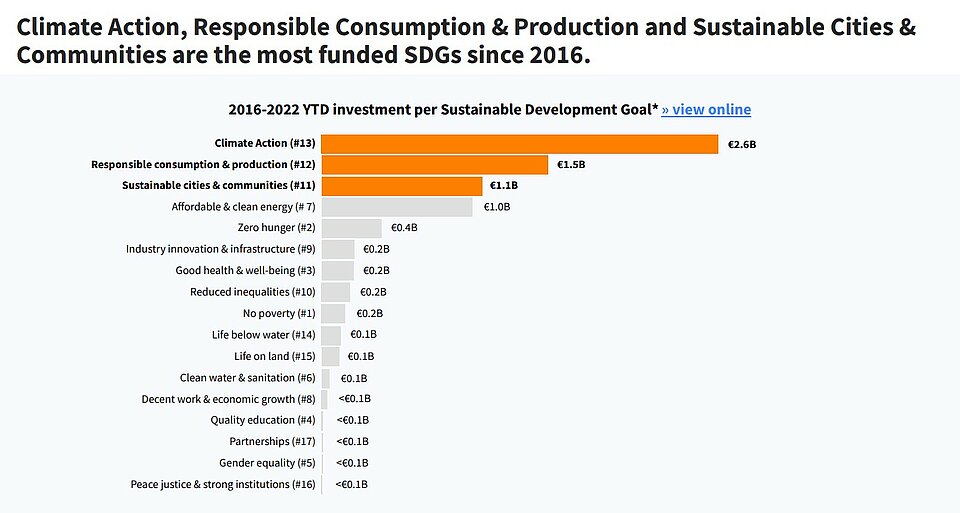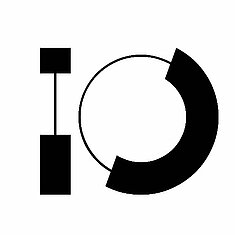Start-ups that have impact prefer to be based in North Brabant or South Holland

Last week, Techleap published the Dutch Startup Employment Report 2022. Its conclusion? Dutch tech start-ups are doing exceedingly well. Start-ups working on innovations to do with sustainability and the energy transition, so-called ‘impact start-ups’, are doing particularly well, according to the report. One in ten start-up employees in the Netherlands works at such an impact start-up.
Impact start-ups as pillar of Dutch start-up ecosystem
Accounting for 13.9 thousand jobs, Dutch impact start-ups have become a prominent sector in the Dutch tech ecosystem. Only healthtech (15.4 thousand jobs) and fintech start-ups (14.7 thousand jobs) employ more people. The provinces of North Brabant, South Holland and Gelderland are home to the highest number of impact start-ups.
The report defines an impact start-up as “a company whose core business focuses on at least one of the UN Sustainable Development Goals (SDGs) and has the potential to be scaled up.” Lightyear from the city of Helmond is the largest impact start-up in the Netherlands, with well over five hundred employees. But also many smaller start-ups, such as Greeniuz, where they are developing electric heat panels to heat homes entirely without gas, or ReShirt, a company that makes shirts from old tablecloths and bed linen, are other examples that fall within this impact definition.
Fastest job growth among food tech and energy start-ups
The number of jobs at food tech start-ups grew 27 percent compared to April last year, making this the fastest growing sector. One example of a success story in this category is Limburg-based Mosa Meat. We wrote about this company earlier in this article when it presented the world’s first cultured meat burger made from stem cells from a cow just under a decade ago. Over the past year, after food tech, energy start-ups are leading the way in terms of job growth.
Start-ups per region
North Holland has the most mature ecosystem with a total of 1,800 start-ups and 51.6 thousand people working in start-up jobs. The province of South Holland comes in second with 1,300 start-ups, of which more than 150 of them are impact start-ups. North Brabant ranks third with 700 start-ups and stands head and shoulders above the rest among deep-tech companies. Among others, the report highlights Prodrive Technologies and Smart Robotics. We previously wrote about the latter citing that they are among the top five robotics companies in the logistics sector globally.
More jobs, plenty of capital
The number of jobs at Dutch start-ups rose in 2021. According to the report, start-ups are good for 135,000 jobs; a 7.6 percent growth from last year. That percentage is well above the growth rate of the overall Dutch economy (4.8 percent). Compared to 2018, an additional 64,500 start-up jobs have been created. The findings of the report are notable given that tech giants such as Twitter, Meta and Stripe saw thousands of their staff actually lose their jobs last year.
In addition to the workforce, investors also know how to find the start-up ecosystem. Despite the looming recession, one billion euros has so far been invested in “green” start-ups this year. That amount is slightly lower than the figure for 2021, but it is twice that of 2020. In other words, venture capitalists are not deterred by the negative economic climate, which looked vastly different in 2021.
The most investments were made in the categories climate action (€2.6 billion), responsible consumption and production (€1.5 billion) and sustainable cities and communities (€1.1 billion).


New tax laws
The start-up climate in this country looks set to get even better next year. The Dutch House of Representatives passed a new law in June to make it easier for start-ups to pay staff in shares. In this way, employees will be able to benefit more easily from the future success of a start-up. Start-ups are consequently able to attract top talent more readily, without having to pay very high salaries outright. The bill will be debated in the Dutch Senate today and tomorrow.
According to Techleap researchers, this change in tax regulations will create tens of thousands of more jobs over the next period. Dutch start-ups are expected to be good for another 116,000 jobs by 2030, yielding a total of 251,000 jobs.
